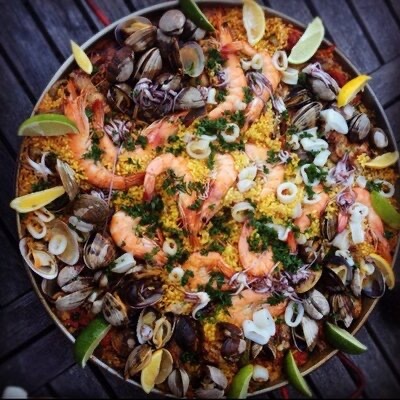Nihon Sakari
Nihon-Sakari
Junmai Shu
I’ll back what she said: dairy, yogurt, vanilla melon rind -accurate, though lactic acid is in there too. Not sweet enough for whey, but water and those flavors, absolutely. I seem to like it better than others; perhaps it’s the lack of acidity or sharpness as this is soft, good body, a great summer saké to serve cold for sipping. Perhaps not ideal pairing with food, but delicious in its own right. — 2 years ago
Myasaka Brewing Company
Masumi Sake Sanka
Masumi was founded in 1662 in the Shinshu region of Suwa, Nagano, Japan.
This Nihon-shu is made with their own original sake yeast called Kyokai No. 7 which is now used in the majority of breweries in Japan. The rice is Yamadanishki from Hyogo.
A bit viscous with delicate flavours of white flowers, persimmon, caramel and white peach.
It has richness and roundness with a hint of acidity and a warm finish. — 3 years ago
Dewazakura
Sakura Boy Sake Mini-Daiginjo
From Yamagata, Japan.
Daiginjo…46 % milling rate…(senmai buai)
Bright water white clear in colour.
Nose of bright cantaloupe musk melon.
Flavours of yellow Asian pear, quince and persimmon…(kaki)
This nihon shu is dry but the most impressive feature is the all encompassing creaminess and mouthfeel.
We had local Albacore tuna sashimi with local Matsutake mushrooms cooked in rice from Hokkaido, Japan. — a year ago
Kodama Brewery
Taihei-zan Tenko Junmai Daiginjo Sake
From Akita in Tohoku, Japan.
Super ripe green melon and white flowers on the nose.
Rich mouth feel.
Ripe Bosc pears, ginger and sweet persimmons with a white nougat finish.
Very smooth and easy drinkable Nihon-shu. — 2 years ago
Hakutsuru Sake Brewing Co.
Dai Ginjo Sake
Hakutsuru Kura in Kobe, Japan.
Lighter, medium bodied sake.
Bright green melon, white flowers and lemon grass.
Smooth acidity but not overwhelming..
Easy drinking Nihon shu with a clean and fresh finish.
If you wanted to introduce someone to sake..Nihon shu…this is a good choice.
— 2 years ago
Nabeyoshi Limited Company
Yamahai Yoshibe Junmai Sake
Yamahai method to make Nihon shu.
No lactic acid is added to deter microbes and bacteria from spoiling the fermentation.
It is left to ferment naturally.
Ripe green melon on the nose.
Ripe melon, papaya, a creaminess and nought with a smooth finish.
Nihon shu can change (like good Riesling) if it warms up 2-3 degrees.
More expansive in flavours with a couple of degrees in temperature.
This Nihon shu is amazing with scallop sashimi.
— 4 years ago
Nihon Sakura LLC
Echigozakura Daiginjo Sake
Little bit on the sweeter side. Guessing Yamada rice. Can’t tell the yeast off the aroma. — a year ago

A cross between Association #1601 and #9, this also produces very high levels of ethyl caproate.
With better balance than #1601, this yeast has become a very popular choice for brewing Daiginjo for entry to the Annual Japan Sake Awards. However, as is common with high aroma producing yeasts, it is relatively weak during fermentation, which typically leads to slightly sweeter sake” and “ the super-modern varieties like #1901, a non-foaming variety famous for producing pronounced fruity bouquets.”
Kikumasamune Shuzou
Hyaku Moku Hyōgo Junmai Daiginjo Yamadanishiki
This is beautiful Nihon-shu.
Super ripe green melon, persimmon, ripe apricot and nougat.
With a semi-viscous quality, creamy texture and mouthfeel. There is acidity here but it’s hiding behind the richness.
We had seared Japanese beef from Iwate in northern Japan.
It tasted like meat flavoured butter.
— 2 years ago
Honda Shoten
" Tatsuriki" Power of Dragon Junmaiginjo Sake
Tatsuriki from Honda Shoten in Hyogo, Japan. Junmai Ginjo.
100 % Yamada Nishiki rice.
White peach, spring flowers and ume (green plums) on the nose.
Sweet honey dew melon, orange blossom, kumquat, lychee and a creaminess that lasts forever.
There is an elegance to this Nihon shu.
We had fresh caught local Spot Prawns sashimi and local diver caught octopus grilled.
— 3 years ago



Norman
This was sharper on the palate, more alcohol and I think it’s silly when they include gold flakes in the drink. It’s supposed to be somehow restorative; I don’t even think that’s based in pseudo-science; it’s just a fad/marketing thing. In any case, it imparts no flavor which this same had a lot of, but it didn’t match the others which were higher quality imho. — 5 months ago